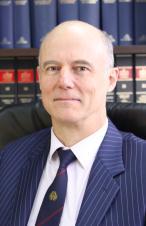Contact Us
KOGARAH OFFICE
Suite 309 – 310, Level 3
13A Montgomery Street
KOGARAH NSW 2217
SYDNEY CITY OFFICE
Ground Floor
54 Martin Place
SYDNEY NSW 2000
Email: solicitors@gmhlegal.com
Phone: (02) 9587 0458
Facsimile: (02) 9587 2936
Defending a Will
If you are an Executor, a beneficiary, or someone who has unfortunately been bereaved, the last thing you will want to think about in this time of heartache is someone contesting or challenging the deceased’s Will. We understand that this can be a very difficult situation and appreciate that you will want it to go away as soon as possible. At GMH Legal, we are on hand to offer you the advice and support you need to overcome these challenges and move on with your life. Our goal is to ensure our clients are treated fairly and a favourable outcome is reached in the shortest possible time.
The number of blended ‘large’ families in Australia has been increasing every year, along with an increased number of Will Contests and Challenges. This is why it’s vital for Executors to be prepared for these situations, should they occur, by having access to the best legal advice available. The laws in New South Wales that govern these situations can be quite complex, so it helps to have an experienced team with a successful track record in your corner.
Without proper legal advice, defending a Will can be an exhaustive and stressful process, that has the potential to drag out for many months. We work hard to ensure the Will Defence process is smooth, stress-free and swift, to give our clients freedom to focus on other important tasks, like organising the funeral and managing the requests of the beneficiaries.
GROUNDS FOR WILL CONTESTS
The following section will provide you with the grounds on which the will can be challenged and the identity of the individuals who can challenge the will.
Objections often raised against wills include:
- Will was improperly prepared, executed or witnessed and failed to meet the statutory requirements
- Deceased person did not have sufficient mental capacity to execute the will
- Fraud, undue influence or some form of force was used against the deceased at the time of the will’s execution
- Will was forged
- Failure to make adequate provision for certain individuals
WHO MAY CONTEST A WILL?
The following individuals may contest a will:
- Surviving spouse
- Former spouse
- De facto partners
- Children
Step children and grandchildren can only be eligible to contest a will by making a Family provision claim, if they can prove that they were dependent on the deceased person. For more information about family provision claims, please refer to the ‘Family provision claims’ section of our website.
DEFENDING THE TESTATOR’S CAPACITY TO MAKE A WILL
Anyone over the age of 18 can make a will, however people who make a will must have testamentary capacity. This means that they must be of sound mind, memory and understanding at the time of making the will.
A person is regarded as having the required capacity if they:
- Understand the nature and the effect of a will
- Know the nature and extent of their property
- Comprehend and appreciate the claims to which they ought to give effect
- Are not affected delusions that influence the disposal of their assets at the time they are making their will.
Sick or elderly individuals
A will can be challenged on the grounds that the will-maker did not have sufficient capacity. This arises most frequently when the will-maker is or extremely old when they make or change their will.
Your role as the defendant, will be to prove that the deceased was in sound mind at the time the will was drafted.
To do so, you should obtain evidence of the testator’s testamentary capacity in the form of a medical certificate from a doctor or health worker.
You can also obtain evidence of the testator’s testamentary capacity by obtaining evidence from the witnesses who counter signed the will or by requesting the notes of the Solicitor who drafted the will.
Individuals with intellectual disability
Testamentary capacity may also be an issue for people with intellectual disability. While evidence of capacity is not legal required, it may be desirable in some cases where the disability is severe or if there is a likelihood that the will could be challenged later on.
If it is clear that the person does not have the testamentary capacity to make a will, the Succession Act 2006 now provides for court authorised wills for those lacking testamentary capacity. Upon application, the Court may authorise that a will be made, altered or partially/fully revoked on behalf of a person lacking capacity either though immaturity or a particular incapacity.
Your role as the defendant, will be to prove that the deceased was fully aware of what he/she was doing at the time the will was prepared and executed.
To do so, you should obtain evidence of the testator’s testamentary capacity in the form of a medical certificate from a doctor or health worker.
You can also obtain evidence of the testator’s testamentary capacity by obtaining evidence from the witnesses who counter signed the will or by requesting the notes of the Solicitor who drafted the will.
For more information, please refer to Legal Answer’s ‘Capacity to make a will’ section.
FRAUD – UNDUE INFLUENCE
If a person who has assisted the will-maker to draw up a will also stands to gain a great deal from it, that person may have to prove to the Court that there was no trickery, pressure, force or even fear involved in the making of the will.
The Court will overturn a will on the ground of undue influence where it is satisfied the will-maker’s mind was coerced to such an extent that the resulting will was contrary to the will-maker’s real intentions.
However, it can be difficult to prove undue influence unless there were witnesses present when it happened.
DUTY TO ASSIT THE COURT
The executor has a duty to provide information to the Court when requested, concerning the deceased’s estate.
You will need to provide that information in an Affidavit (sworn statement).
The information requested from you by the Court may include:
- A copy of the deceased’s Will and the probate or letter of administration if granted
- A description of the nature and value of the assets and liabilities of the deceased at the date of death
- What is, or likely to be, the nature and an estimate value of:
- The assets and liabilities of the deceased at the date of swearing the Affidavit
- Any property of the deceased that has been distributed at any time after the death of the deceased and the date of the distribution of that property
- The gross distributable estate (omitting the costs of the proceedings)
- A description of the nature and an estimate of the value of any property which, in the administrator’s opinion, is or may be the subject of any prescribed transaction or relevant property transaction.
- The name and address of every person who, in your opinion, is holding property as a trustee, or otherwise which is, or may be, the subject of any prescribed transaction or relevant property transaction.
- Any testamentary and other expenses, or other liabilities of the estate that have been paid out of the estate of the deceased, including the amount, if any, paid form or on account of, the administrator’s costs of the proceedings,
- Whether any commission is to be sought by you (the administrator), and if so, an estimate of the amount proposed to be sought
- The names and address of every person who, in your opinion is, or who may be:
- An eligible person
- An eligible person under a legal incapacity
- A person beneficially entitled to the distributable estate
- A person holding property as trustee or otherwise
For more information about mediation, please refer to the District Law Society’s ‘Family Provisions Claims under the Succession Act 2006 (NSW)’ publication.
DUAL CAPACITY
In the event you are the executor of a will in addition to being a beneficiary of the will, you will be considered to be acting in ‘dual capacity’.
If this scenario applies to you, please note that in order to prevent any conflict of interest, you must apply to the Court for separate representation.
If you are an executor faced with a contest about the will, please contact GMH Legal. We will be able to quickly provide you with expert advice and guidance in this complex area of law.
Call the experienced team at GMH Legal to assist you in your matter.
A free consultation with GMH Legal is an opportunity to gain deep insights into your legal situation and all of your options.
Why Choose GMH Legal?
- Over 60 years of combined legal experience
- Outstanding track record with a winning approach
- First appointment is always free
- Meet our team now.






